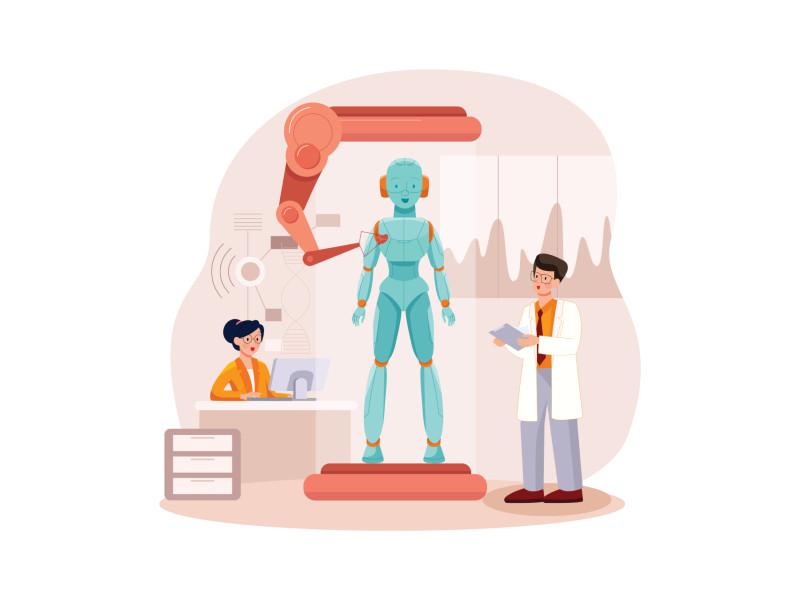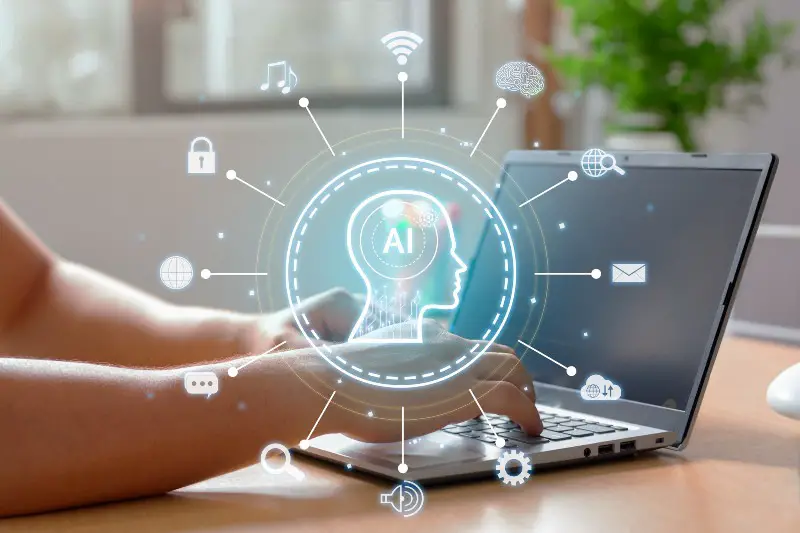Introduction
At the cusp of a new technological era, AI Horizon represents the transformative impact of Artificial Intelligence (AI) across diverse sectors. This blog post delves into the significant influence of AI in healthcare, its role in reshaping the strategies of business professionals, the advancements in computer vision, and the evolving concept of the future of work. Each of these areas is witnessing a paradigm shift, driven by the innovative applications and potential of AI. We will explore the myths and facts, answer frequently asked questions, provide practical tips, and share some little-known facts about AI.
AI Horizon is more than a technological phenomenon; it’s a paradigm shift that is redefining traditional practices and paving the way for future innovations. Whether you’re a healthcare provider, a business executive, or a tech enthusiast, this post will offer valuable insights into how AI is reshaping these fields. Join us as we navigate the exciting and ever-evolving landscape of AI.
Healthcare and AI
Revolutionizing Patient Care
In healthcare, AI is a game-changer. It’s transforming patient care with more accurate diagnostics, personalized treatment plans, and advanced research methodologies. AI’s ability to analyze vast datasets is leading to breakthroughs in understanding complex diseases and developing new treatments.
Enhancing Medical Research
AI’s role in medical research is pivotal. It’s not just about data analysis; it’s about uncovering new patterns, accelerating drug discovery, and opening doors to innovative treatment methods. AI is a powerful tool in the quest to solve medical mysteries and improve healthcare outcomes.
Business Professionals and AI
AI in Decision-Making
For business professionals, AI is an invaluable asset. It offers deep insights through data analysis, helping in strategic decision-making, market trend prediction, and consumer behavior understanding. AI is reshaping how businesses operate and compete in a data-driven world.
Streamlining Business Processes
AI is revolutionizing business processes by automating routine tasks, enhancing efficiency, and reducing operational costs. From customer service to supply chain management, AI is enabling businesses to focus on growth and innovation.
Computer Vision and AI
Revolutionizing Machine Perception
Computer Vision, a branch of AI, is transforming how machines perceive and interpret the visual world. This technology enables machines to analyze images and videos, extracting meaningful information for various applications, from facial recognition to autonomous vehicles.
Expanding the Horizons of Computer Vision
The potential of Computer Vision is vast. It’s being used in healthcare for diagnostic purposes, in retail for customer behavior analysis, and in security systems for surveillance. As technology advances, its applications are set to become more diverse and integrated into everyday life.
The Future of Work and AI
AI’s Impact on Job Dynamics
The future of work is being reshaped by AI. While there’s fear of job displacement, AI also creates new job opportunities and enhances productivity. AI automates routine tasks, allowing employees to focus on more creative and strategic activities. This shift is not just about job loss; it’s about job transformation.
Preparing for the AI-Driven Workplace
As AI becomes more prevalent in the workplace, the skills required for jobs are changing. There’s a growing need for digital literacy, adaptability, and lifelong learning. Employees and employers alike must prepare for a future where AI is an integral part of the work environment.
Myths vs. Facts about AI in Healthcare
Myth: AI Will Replace Human Doctors
Fact: AI is designed to augment, not replace, medical professionals. It enhances their capabilities by providing accurate data analysis and diagnostic support.
Myth: AI Healthcare Solutions are Infallible
Fact: AI in healthcare is only as good as the data it’s trained on. It requires continuous refinement and validation to ensure accuracy and reliability.
Myth: AI Poses a Threat to Patient Privacy
Fact: While there are challenges, AI can be implemented with strong privacy safeguards. The key is to balance innovation with ethical data practices.
FAQ Section
Q1: How is AI Impacting Healthcare?
A1: AI is transforming healthcare by improving diagnostic accuracy, enabling personalized treatments, and facilitating advanced research. It’s making healthcare more efficient and patient-centric.
Q2: What Role Does AI Play in Business Growth?
A2: AI plays a significant role in business growth by providing data-driven insights for strategic decision-making, optimizing operations, and enhancing customer experiences.
Q3: What is Computer Vision in AI?
A3: Computer Vision in AI refers to the ability of machines to interpret and analyze visual data from the world, similar to human vision, and is used in various applications.
Q4: Why is Ethical AI Important?
A4: Ethical AI is important to ensure that AI technologies are developed and used in a way that is fair, transparent, and respects individual rights and privacy.
Q5: Can AI Improve Workplace Efficiency?
A5: Yes, AI can significantly improve workplace efficiency by automating routine tasks, providing analytical insights, and enhancing decision-making processes.
Practical Tips and Tricks for AI Integration
- Emphasize Data Quality: High-quality, diverse data is crucial for training effective AI systems.
- Prioritize Ethical Considerations: Focus on developing AI solutions that are fair, transparent, and respect privacy.
- Stay Informed: Keep up with the latest developments in AI to understand its evolving capabilities.
- Collaborate and Communicate: Effective AI integration requires collaboration across various departments and clear communication about AI capabilities and limitations.
- Regular Monitoring: Continuously monitor AI systems to ensure they are functioning as intended and delivering value.
Google Snippets
AI in Healthcare
“AI in healthcare involves using algorithms and software to analyze complex medical data, leading to enhanced diagnostics, treatment planning, and patient care.”
Computer Vision in AI
“Computer Vision in AI refers to the technology that enables computers and systems to derive meaningful information from digital images, videos, and other visual inputs.”
The Future of Work and AI
“The future of work with AI involves a shift in job dynamics, with AI automating routine tasks and creating new opportunities for employment in tech-related fields.”
Artificial Intelligence Meaning
- Oxford Languages: “Artificial intelligence involves the development of computer systems able to perform tasks normally requiring human intelligence, such as visual perception, speech recognition, and decision-making.”
- Merriam-Webster: “A branch of computer science dealing with the simulation of intelligent behavior in computers.”
- Cambridge Dictionary: “The study of how to produce machines that can do things which would require intelligence if done by humans.”
Did You Know?
- AI algorithms have been used to predict patient health outcomes, significantly improving treatment plans.
- Computer Vision AI is being used to monitor endangered species and track their movements in the wild.
- Ethical AI discussions are leading to new policies and guidelines to govern AI development and use globally.
Conclusion
The journey through the AI Horizon reveals the transformative impact of AI across healthcare, business, and technology. As we embrace this new era, it’s crucial to balance technological advancement with ethical considerations and privacy concerns. AI’s potential is vast, offering opportunities for innovation and improvement in various sectors. However, navigating this landscape requires a thoughtful approach, ensuring that AI benefits society as a whole and respects individual rights. The AI Horizon is not just about the future; it’s about shaping a better world with the tools and technologies we develop today.
https://ai-make.money/artificial-intelligence-unleashing-the-creative-power/
https://earn-money.ai/artificial-intelligence-embracing-marketing-landscape/

The Dawn of a New Era: AI’s Indispensable Role in Modern Cryptography

References
- Explainable AI that uses counterfactual paths generated by conditional permutations of features. This method is used to measure feature importance by identifying sequential permutations of features that significantly alter the model’s output. The paper discusses the evaluation strategy of comparing the feature importance scores computed by explainers with the model-intern Gini impurity scores generated by the random forest, which is considered as ground truth in the study.
- Thinkful offers insights on how to address the “black box” problem in AI through Explainable AI (XAI) and transparency models. They discuss techniques like Feature Importance Analysis, Local Interpretable Model-agnostic Explanations (LIME), SHapley Additive exPlanations (SHAP), Model Distillation, and Decision Rules, which are designed to make AI models more interpretable and transparent. This is especially important in applications where decisions can have far-reaching consequences, such as healthcare or finance






